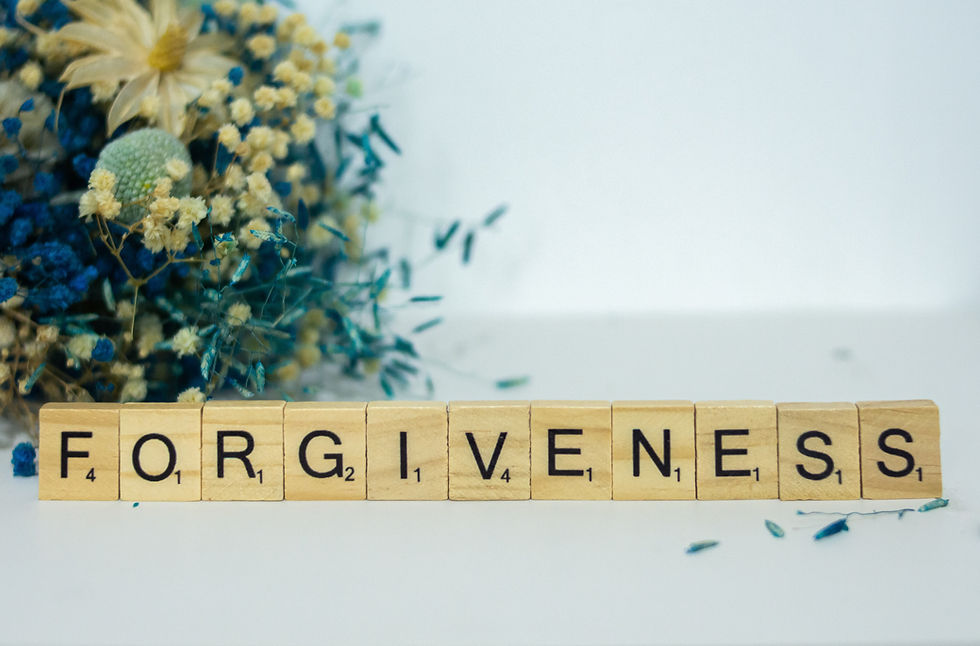Why Forgiveness for Yourself and Others Can Be a Key to Healing
- Sharon's Wings of Hope

- Jan 29, 2025
- 2 min read

Forgiveness is often seen as one of the most challenging parts of the healing journey for survivors of domestic violence. It is deeply personal and requires time, patience, and self-compassion. While it may not erase the pain of the past, forgiveness both of oneself and others can play a vital role in breaking free from the chains of trauma and finding lasting peace.
Forgiveness Is About Liberation, Not Forgetting
Forgiveness is not about condoning abuse or forgetting what happened. It is about releasing the hold that anger, resentment, and bitterness may have on your emotional well-being. By forgiving, you choose to no longer let the pain of the past dictate your future.
The Power of Self-Forgiveness
Survivors of domestic violence often grapple with guilt, shame, or self-blame. Thoughts like, “Why didn’t I leave sooner?” or “How could I let this happen?” can weigh heavily on the heart. Self-forgiveness is the first step toward healing and involves recognizing that the abuse was never your fault.
Forgiving the Abuser: A Personal Decision
Forgiving an abuser is not mandatory and should never be rushed or forced. For some, it can be a powerful way to reclaim emotional power and move forward without hatred. For others, healing does not require forgiving the abuser. The focus should remain on what feels right for you.
The Healing Benefits of Forgiveness
Emotional Freedom: Letting go of resentment reduces emotional stress and allows you to focus on rebuilding your life.
Improved Mental Health: Studies show that forgiveness is linked to lower rates of anxiety, depression, and PTSD.
Strengthened Relationships: Forgiveness can help repair relationships with supportive friends and family, fostering a sense of community and love.
Practical Steps Toward Forgiveness
Acknowledge Your Pain: Be honest about your emotions and how they’ve affected you.
Seek Support: Talk to a therapist, counselor, or support group to process your feelings in a safe space.
Practice Self-Compassion: Treat yourself with kindness, recognizing that healing is a journey, not a destination.
Find Meaning: Reflect on the lessons you’ve learned and how they’ve shaped your strength and resilience.
Faith and Forgiveness
For many, faith provides a foundation for forgiveness. Understanding that forgiveness is a divine gift and a step toward spiritual peace can offer solace and guidance.
At Sharon’s Wings of Hope, we encourage survivors to embrace their unique healing journey. Whether forgiveness is part of your path or not, we are here to support you with compassion and resources. Healing is possible, and you deserve a life filled with hope and peace.




Comments